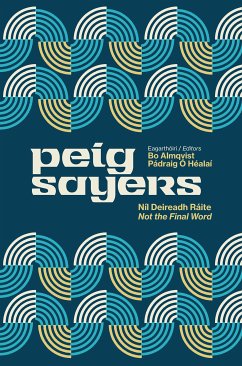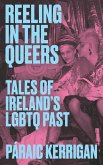In Eanáir 1952, sé bliana sula bhfuair Peig Sayers bás, thionscain Coimisiún Béaloideasa Éireann agallaimh léi agus í in ospidéal Naomh Anna, Baile Átha Cliath. Bhí Peig thar a bheith sásta labhairt lena cuairteoirí a raibh Gaeilge Chiarraí ar a dtoil acu agus seanaithne aici orthu.
Foilsítear den chéad uair in Níl Deireadh Ráite na hagallaimh sin mar aon le réamhrá tathagach, tráchtaireacht agus aistriúchán Béarla ar an iomlán. Cuireann Peig i láthair anseo seanscéalta idirnáisiúnta, scéal Fiannaíochta, finscéalta taistealacha, seanchas stairiúil agus sísheanchas, roinnt paidreacha, agus tá cúpla léaráid óna mac, Mícheál Ó Gaoithín, mar anlann leo. Léiríonn na taifeadtaí a bua mar scéalaí oilte, a hacmhainn grinn, a móreolas ar scéalta traidisiúnta agus a cumas máistriúil á gcur i láthair trí shúile mná. Buanaíonn an saothar seo ionad Pheig mar dhuine de shárscéalaithe na Gaeilge agus cinntíonn sé go bhfuil a cuid scéalaíochta le háireamh ar scoth na healaíne béil sa tír seo.
Among the first rank of Irish storytellers
In January 1952, six years before she died, Peig Sayers was interviewed by a team from the Irish Folklore Commission in St Anne's Hospital, Dublin. She was more than happy to be recorded, and pleased to be visited by old friends, all of whom spoke fluent Kerry Irish.
In Not the Final Word these interviews are published for the first time, in both Irish and English, along with a substantial introduction and detailed annotation. Here Peig tells her versions of international folktales, a Fenian tale, some prayers, migratory legends and historical and supernatural lore, illustrated in paintings by her son, Mícheál Ó Gaoithín. She emerges as a warm and authentic storyteller, with a ready sense of humour, a deep knowledge of traditional narrative and highly skilled in its presentation. This collection reaffirms Peig Sayers's position in the first rank of Irish storytellers and firmly establishes her tales in the canon of Irish oral literature.
Dieser Download kann aus rechtlichen Gründen nur mit Rechnungsadresse in A, B, BG, CY, CZ, D, DK, EW, E, FIN, F, GR, H, IRL, I, LT, L, LR, M, NL, PL, P, R, S, SLO, SK ausgeliefert werden.









